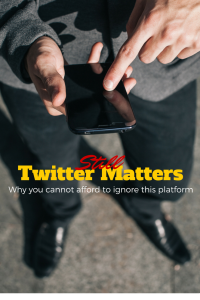
Is your business particularly well-suited for a certain time of year?
Chances are, the answer is yes. If you own a clothing store, you’re probably going to see a big uptick in business around Christmas. If you own an ice cream shop, you’re likely to have more business during summer than during the bleakest days of winter. My own premium steak business does some particularly brisk business around Father’s Day and other grilling-centric holidays.
Seasonality is relative, and your peak season may not be the same as the next guy’s. It’s important that you know when your best seasons are, though, and make the most of them.
And if you have a small pile of money that you’ve earmarked specifically for marketing and brand-building, you may very well wish to invest nearly all of it during your peak season—even if that means making yourself more or less invisible during the rest of the year.
Think about it: If you know that a dollar you invest in December will yield a $ 1.50 return, while a dollar you invest in April will yield a ten cent return, why wouldn’t you pour everything into that concentrated December window?
If your best chance of getting new customers is during Christmas, why wouldn’t you set aside the bulk of your marketing money for a big Christmas campaign?
Remember that building an audience for your business tends to be costly, while maintaining an audience isn’t. So if you invest in bringing in new customers during your peak season, it shouldn’t be too much of a strain to send out a monthly email newsletter throughout the rest of the year, just to keep in touch with previous customers and clients.
Of course, all of this requires you to be in business for a year or two to get a feel for which seasons are best for your brand. But once you start to wrap your head around that, it can and should direct your marketing spend for the entire year—orienting much of your budget around those peak months.
Business & Finance Articles on Business 2 Community(22)








